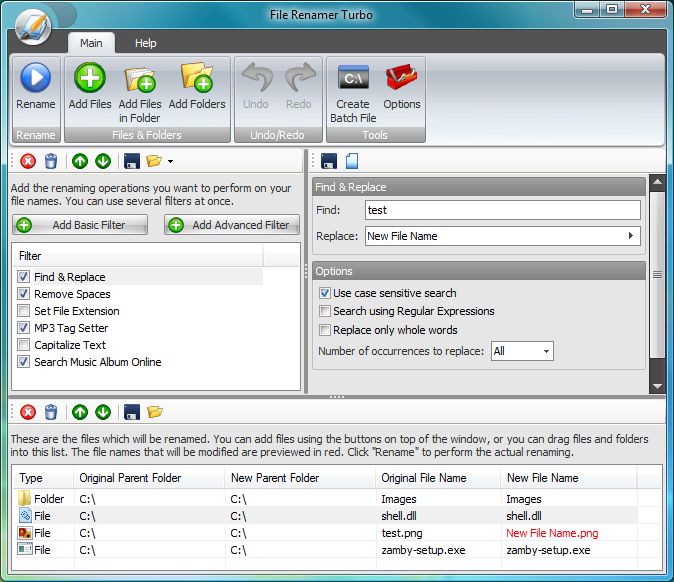

The second part, (.+), is in brackets so that we can refer back to it in the new name using \1, which means insert the characters that matched what was in the first set of brackets. (.+) *followed by one or more characters.Type: Regular Expressions 01_moocow.txt -> moocow.txt Remove the first 3 characters from the start of a filename: We'll use these filenames for the first few examples: 01_moocow.txt a+ will match one or more a characters, but will not match if there are no a characters at all.+ will match one or more of any characters. The + character means match one or more of the thing before me. * then you will match zero or more of any characters, exactly the same as a single * would do in a wildcard expression.

For example, a* will match zero or more a characters. The * character means match zero or more of the thing before me. character means match any single character.
REGEX RENAMER MANUAL
The Regular Expression Syntax appendix near the back of the Opus manual and Help file describes the exact syntax which Opus uses. Different programs and programming languages may do things slightly differently and there is no one standard. Just keep in mind that there are, unfortunately, many variations of regular expression syntax. If you want to learn more about regular expressions there are many resources about them on the web. Along the way it will also provide you with some frequently requested Rename Presets which you can use whether you understand how they work or not. This guide should help you learn the basics of regular expressions. Regular Expressions make it easy to remove characters from the start or end of filenames. See also: Script to perform multiple Regular Expressions


 0 kommentar(er)
0 kommentar(er)
